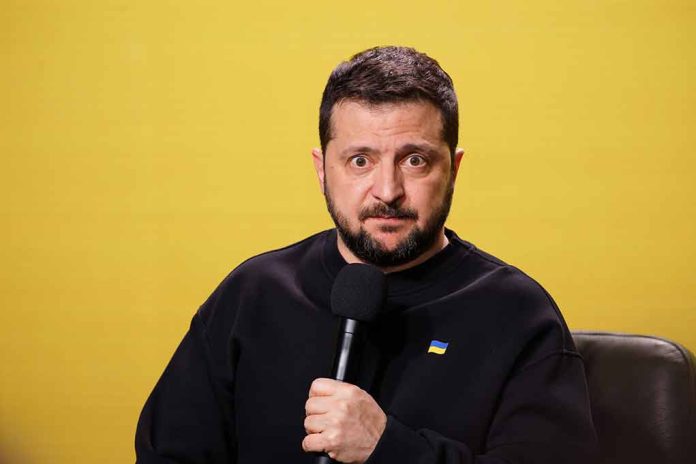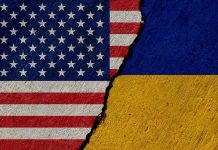
Shocking statement from Russia’s parliamentary left leaves international community on edge with calls for Zelensky’s assassination.
At a Glance
- Russian lawmakers suggest assassination of Ukrainian President Volodymyr Zelensky.
- Heightened conflict between Russia and Ukraine evident in extreme rhetoric.
- Significant implications for regional and global stability.
- Potential diplomatic and geopolitical fallout from NATO, EU, and other international players.
Escalating Tensions
Russian lawmakers from the parliamentary left have openly suggested the assassination of Ukrainian President Volodymyr Zelensky, reflecting a troubling escalation in the conflict between Russia and Ukraine. Such extreme rhetoric demonstrates the deepening animosity and the potential for further destabilization in Eastern Europe, raising alarms on the global stage.
The provocative statement underscores growing dangers in the region, thereby threatening international peace efforts. The implications for regional stability are profound, as the likelihood of this rhetoric translating into action could lead to a significant escalation in the ongoing conflict.
This unwarranted advocacy for an assassination highlights just how volatile the situation has become. It draws attention to the brutal nature of the confrontation and the shift away from diplomatic solutions.
Impact on International Relations
This suggestion of political assassination is likely to send shockwaves through the international community, affecting diplomatic efforts in Eastern Europe and beyond. NATO, the European Union, and other key international players have to respond not only to the assassination rhetoric but also to the broader implications for global stability.
The G7 has already taken steps to address the situation by agreeing to use profits from frozen Russian assets to support a €50 billion loan for Ukraine, avoiding full confiscation due to legal hurdles. However, the need for Western sanctions remains critical, even though they are less effective because of Russia’s global energy exporter status.
The EU debates using €300 billion in Russian assets to support Ukraine. This type of financial intervention could be central to propping up Ukraine’s defense and recovery efforts even amid extreme suggestions from Russian lawmakers.
Geopolitical Consequences
The geopolitical landscape in Eastern Europe is already delicate, and any action to assassinate a sitting president can exacerbate these fragilities. Historically, such rhetoric often leads to severe consequences, magnifying the conflict and affecting countless lives.
The conflict between Russia and Ukraine has been marked by intense hostility, aggressive actions, and contentious public statements. The Kremlin’s narrative of stability in wartime, combined with its tactic of reflexive control, helps in sustaining a unified ideology and directing foreign policy.
A call for assassination further complicates these issues, making dialogue and peace negotiations even more challenging. It fuels animosities and reduces trust among global actors.
Historical Context
The conflict between Russia and Ukraine has spanned several years, with numerous provocative statements from Russian leaders. Such rhetoric often functions as a tool for political maneuvering. For example, Russian officials have previously dismissed Ukraine as a sovereign entity: “Ukraine is not even a country.”
“Don’t you know that Ukraine is not even a real country?” Putin told the US ambassador in 2008. Putin’s moves since—from the 2014 invasion of Ukraine and the annexation of Crimea to the full-scale war Moscow launched in 2022—all stem from this conviction. https://t.co/cCbw68gGro
— Juan Forero (@WSJForero) February 11, 2024
This context helps explain the current state of affairs. Previous statements have set a precedent for aggressive posturing, rendering such an extreme proposal less surprising but no less alarming. As international pressures mount, the rhetoric increasingly becomes a significant barrier to peace and stability.
The international community needs to contemplate the repercussions of such statements fully to avert further violence.
Sources
- Russia’s War in Ukraine: Identity, History, and Conflict
- Think Tank reports on Russia’s war of aggression against Ukraine
- What Putin Fears Most
- Think Tank reports on the invasion of Ukraine 2022 – February 2024
- Conflict in Ukraine’s Donbas: A Visual Explainer
- Ukraine: Conflict at the Crossroads of Europe and Russia














